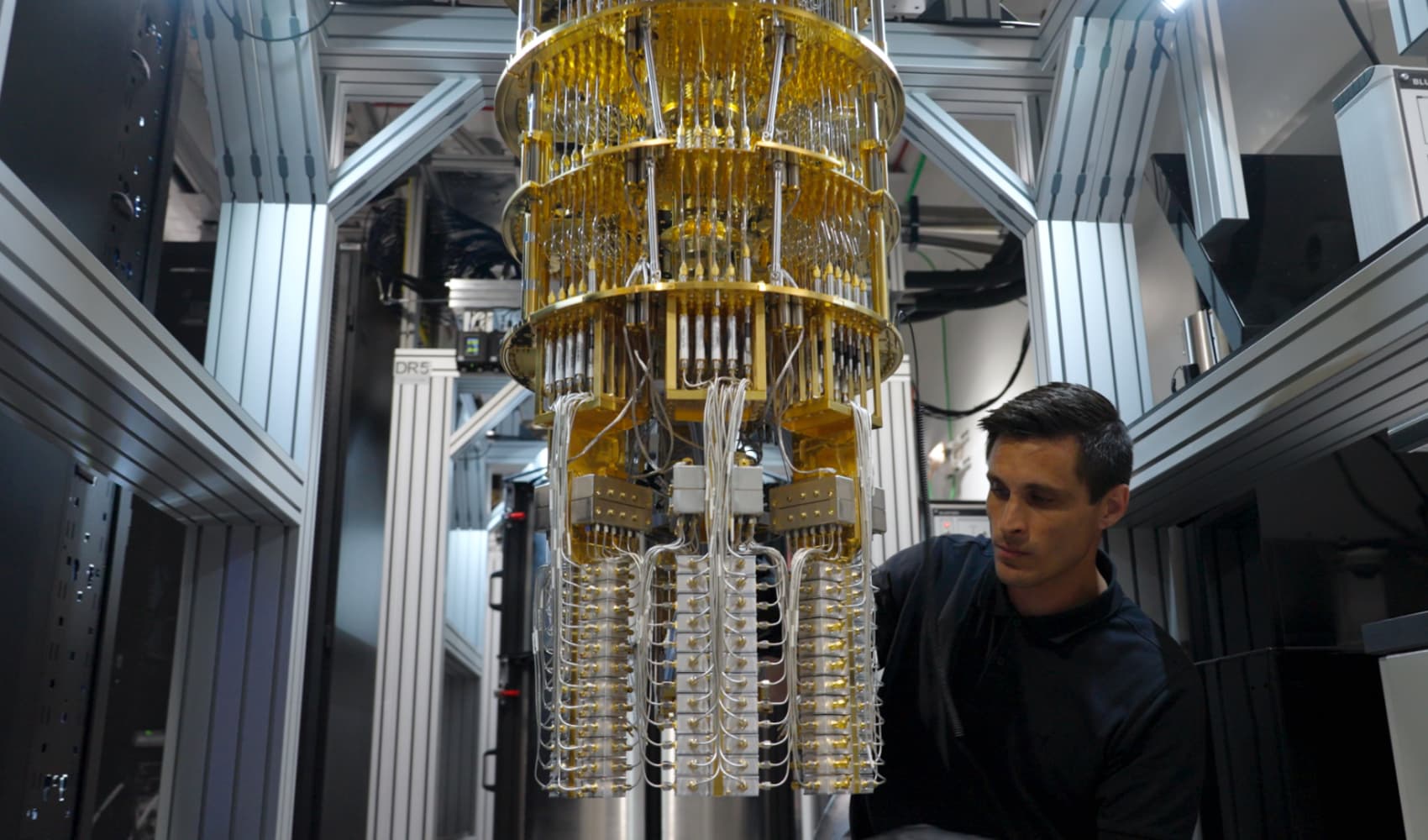Google Funds Nuclear Plants: Powering the Future?
Google Goes Nuclear: Funding New Power Plants for Data Centers
Introduction: A New Dawn for Nuclear Power?
The digital age is hungry. Hungry for data, hungry for processing power, and, perhaps most importantly, hungry for energy. All those cat videos, online games, and AI algorithms need serious juice to keep running. And who’s one of the biggest consumers of that juice? You guessed it: Google. So, what happens when a tech giant like Google faces an ever-growing energy demand? They start thinking outside the box – and inside the reactor core, apparently. Get ready for a potential paradigm shift because Google has agreed to fund the development of three new nuclear sites! This isn't just about powering search engines; it's a statement about the future of energy and the role of nuclear power within it.
Elementl Power and Google: A Nuclear Partnership
The news broke this week: Nuclear developer Elementl Power announced a signed agreement with Google to develop three project sites dedicated to advanced nuclear reactors. But who is Elementl Power? While details are still emerging, they appear to be a key player in bringing innovative nuclear technologies to the forefront. And this partnership with Google? It's a major validation of their approach and a significant boost for the nuclear industry as a whole.
Megawatts and Millennial Tech: Sizing Up the Deal
Each of these three sites is slated to generate a minimum of 600 megawatts. That’s serious power. To put it in perspective, that’s enough to power hundreds of thousands of homes. While the specific financial terms of the deal remain under wraps, the fact that Google is committing “early-stage development capital” speaks volumes. They're not just dipping a toe in the water; they're diving in headfirst. And what does Google get out of it? Read on!
Why Nuclear? Powering the Data Center Revolution
Why would a company like Google, known for its innovation in renewable energy, invest in nuclear? The answer lies in the sheer scale of data center power requirements. Data centers are energy hogs, plain and simple. They require a stable, reliable, and always-on source of power. Solar and wind are great, but they're intermittent. Nuclear, on the other hand, offers a baseload power solution, meaning it can provide a consistent supply of electricity regardless of weather conditions. Think of it as the difference between relying on a sunny day for power versus having a consistently burning fire.
A Trend Takes Hold: Tech Giants Embrace Nuclear
Google’s investment isn’t happening in a vacuum. It's the "latest example of tech giants teaming up with the nuclear industry." Other companies, too, are exploring nuclear options to fuel their data centers. This trend suggests a growing recognition that nuclear power is a viable and even necessary component of a sustainable energy future, especially considering the exponential growth of data processing needs.
Advanced Reactors: What Makes Them Different?
Elementl Power is focused on "advanced reactors." But what exactly are those? These aren't your grandfather's nuclear reactors. Advanced reactors often utilize different fuels, coolants, and designs, aiming for improved safety, efficiency, and waste reduction compared to traditional nuclear plants. They represent a new generation of nuclear technology designed to address the concerns that have historically plagued the industry.
The Option to Buy: Google's Energy Monopoly?
One key detail revealed is that "Google will have the option to buy th..." – the sentence is cut, but we can infer that Google may have the option to purchase the power generated by these reactors. This is a significant advantage, potentially giving Google a long-term, secure, and cost-effective energy supply. Is this the beginning of Google becoming an energy provider? Only time will tell.
Public Perception: Navigating the Nuclear Stigma
One of the biggest challenges facing the nuclear industry is public perception. Memories of past accidents like Chernobyl and Fukushima still linger. Overcoming this stigma requires transparency, education, and a commitment to safety. Advanced reactors offer the potential to alleviate some of these concerns with their inherent safety features and reduced environmental impact.
Environmental Impact: Nuclear vs. Fossil Fuels
While nuclear power isn't without its challenges, it's crucial to compare its environmental impact to other energy sources, particularly fossil fuels. Nuclear power produces virtually no greenhouse gas emissions during operation, making it a vital tool in combating climate change. When you look at the alternatives, nuclear stands out as a relatively clean and efficient energy source that could play a pivotal role in our energy future.
The Role of Government: Policy and Regulation
Government policy plays a crucial role in the development of nuclear power. Regulations, permitting processes, and financial incentives can either accelerate or hinder progress. Streamlining these processes while maintaining rigorous safety standards is essential to unlocking the full potential of nuclear energy. Will governments embrace nuclear more readily now that major tech players are getting involved? This remains to be seen, but it is definitely pushing the conversation forward.
The Future of Data Centers: Energy Independence
Google's investment in nuclear power could pave the way for greater energy independence for data centers. By securing a stable and reliable energy source, these facilities can reduce their reliance on the grid and potentially even become energy exporters. Imagine a future where data centers are not just consuming energy, but also generating it. Could this be a reality? It is starting to look like it might be!
Economic Impact: Jobs and Growth
The development of new nuclear facilities has a significant economic impact, creating jobs in construction, engineering, and operations. These projects can stimulate local economies and provide long-term employment opportunities. We're talking about potentially thousands of new jobs and a real boost to local communities.
Technological Innovation: Beyond Power Generation
Beyond powering data centers, the technology developed for advanced nuclear reactors has the potential to spin off into other applications. From medical isotopes to hydrogen production, nuclear technology can contribute to a wide range of industries. What other innovative uses might we discover in the future? The possibilities are endless!
Google's Green Goals: Aligning with Sustainability
Google has publicly committed to ambitious sustainability goals, including powering its operations with 100% renewable energy. While nuclear power isn't technically renewable, it is a low-carbon energy source that can help Google achieve its goals. How does this align with their green initiatives? It's a complex picture, but the reality is that Google needs a reliable, low-carbon energy source to keep its operations running smoothly, and nuclear fits the bill.
Potential Challenges: Safety and Waste Disposal
Despite the potential benefits, nuclear power still faces significant challenges. Safety concerns, waste disposal issues, and the risk of proliferation are all legitimate concerns that must be addressed. However, advanced reactor designs offer the potential to mitigate some of these risks. The nuclear industry needs to tackle these issues head-on in order to win public trust and ensure a safe and sustainable future.
Conclusion: A Nuclear-Powered Future?
Google's decision to fund the development of three new nuclear sites marks a pivotal moment in the energy landscape. It signals a growing recognition that nuclear power is a viable and necessary component of a sustainable energy future. While challenges remain, the potential benefits of advanced reactor technology, including increased safety, reduced emissions, and greater energy security, are too significant to ignore. This is not just about powering data centers; it's about shaping the future of energy itself. So, are we heading towards a nuclear-powered future? The pieces are certainly falling into place.
Frequently Asked Questions
Here are some frequently asked questions about Google's investment in nuclear power:
- Why is Google investing in nuclear power? Google needs a reliable and low-carbon energy source to power its energy-intensive data centers. Nuclear power offers a baseload power solution that complements renewable energy sources.
- What are advanced nuclear reactors? Advanced reactors use different fuels, coolants, and designs compared to traditional reactors, aiming for improved safety, efficiency, and waste reduction.
- Is nuclear power safe? Advanced reactor designs incorporate enhanced safety features to mitigate the risk of accidents. However, responsible operation and regulatory oversight are crucial to ensuring safety.
- What about nuclear waste disposal? Nuclear waste disposal is a complex issue, but advanced reactor technologies are exploring methods to reduce waste volume and toxicity. Long-term storage solutions are also being developed.
- How will this affect the environment? Nuclear power produces virtually no greenhouse gas emissions during operation, making it a valuable tool in combating climate change. However, responsible mining of uranium and careful management of nuclear waste are essential for minimizing environmental impact.



